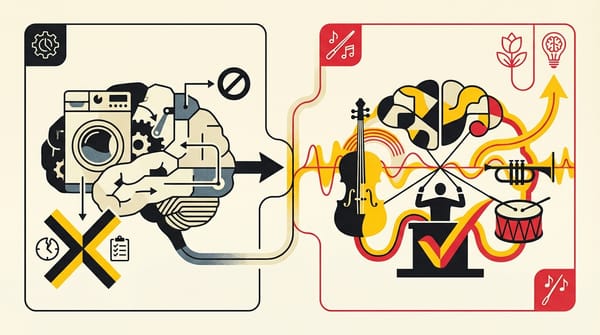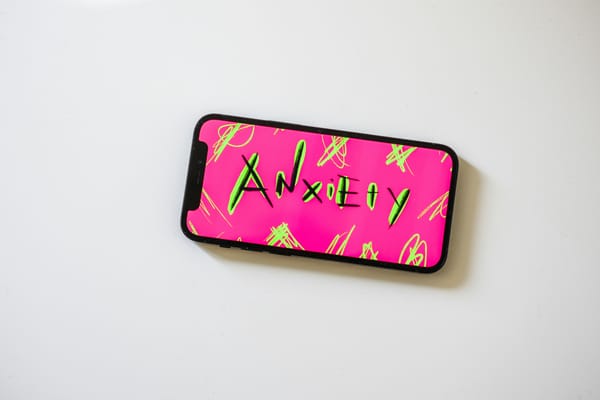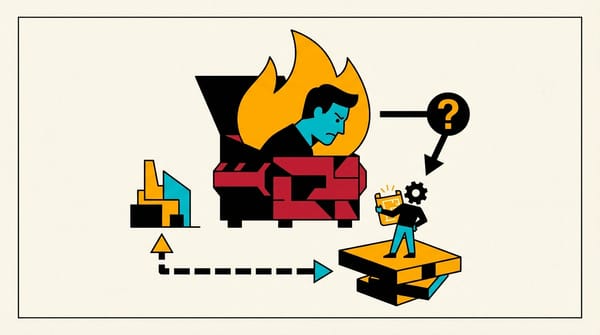My honest view on career: what has changed and why it matters today
Discover how shifting career dynamics impact your future and why lifelong learning is essential in today's fast-paced world.

In the modern world, significant new technologies emerge every 2-3 years, and the volume of digital information doubles every two years, according to data from the International Data Corporation (IDC).
What an infantile youth we have now!
They are not infantile — they have a long life ahead, by 2050 the average life expectancy in the world may reach 77 years, which is 7 years more than now. And in developed countries, this figure may exceed 85 years.
And they will have to learn throughout their lives. They won't be able to get an education and go to work at a factory for the rest of their lives, where they'll be carried out in a coffin.
Progress moves forward inevitably, and we have now entered a reactive era, which explains such a strong gap between baby boomers and Generation Z. Compared to today, everything used to happen smoothly and gradually. However, the invention of an efficient and widely used version of the steam engine at the end of the 18th century became a key factor that marked the beginning of the industrial revolution at the turn of the 18th-19th centuries. And for that time, it seemed like an incredible leap in progress and caused such changes in the economy and social structure as the growth of factory production, mass urbanization, and the transition from an agrarian to an industrial society. Of course, many had to retrain. With the development of industries, a new challenge arose for the education system: in the New and Old World, education focused on training narrow specialists and encouraging internal career ladders, implying work in one type of enterprise for life.
Now we will count transformation not in centuries, but at best in decades.
For example:
Research by McKinsey has shown that by 2030, more than 375 million workers worldwide will be forced to retrain and change their skills to meet the requirements of new professions.
According to current LinkedIn data for 2024, skills in data analysis and artificial intelligence have become the most in-demand in the job market, and their popularity continues to grow.
LinkedIn statistics say that employers' requirements for employee skills change every 5-7 years. Specialists who are not ready to adapt risk becoming irrelevant.
The Era of Continuous Development and Individuality
Therefore, I see that in 2025, the "era of individuality" will manifest itself like never before. If you've heard that personal branding is no longer relevant, but community branding is the thing, my thoughts on this are below the line.
Personal branding is closely related to your personality, if, of course, you're not misleading people and creating a false image. For example, in the IT industry, there are many successful professionals, such as Pavel Durov or Elon Musk, who were able to significantly strengthen their careers by creating a strong personal brand. In the scientific field, people like Neil deGrasse Tyson have also become influential thanks to their unique style and personal brand. And if it's really your personality, then it's directly related to your development. Therefore, personal branding is not becoming obsolete, but is a logical continuation of your individual development.
The era of personality lies in the fact that your value as a specialist is growing. If you are unique and can think outside the box, you are more valuable to the company than an employee acting according to instructions. Don't get me wrong, the latter are also very important, they just get paid less.
Advanced countries are restructuring schools and moving away from stereotypical programs. And professors at universities are increasingly checking not so much specific knowledge as the ability to think within the framework of their subject.
Now graduates who are able to think freely and creatively will appear more often than before. Therefore, it's worth thinking now about where you can start, at least to keep up, and at most - to give them strong competition.
Personal branding and community branding are different things.
Community branding, which is much talked about now, is more of a fashion trend. People are trying to make money on it, but they don't always understand how it works. That's why some mistakenly "cancel" personal branding.
In this context, community branding is just a tool. The brighter the personality and individuality, the brighter the community you will create. This approach is more suitable for creators to make money, but there's nothing new about it - it's not the know-how that everyone is trying to sell.
Universities around the world have been actively using community psychology for many centuries. After all, a university is a community that carries a lot of meaning, and depending on the level of the university, studying there proportionally opens different "doors".
And so the examples are very different.
Here are some examples of communities with strong branding:
- The TED Talks scientific community, uniting experts from different fields to spread ideas
- The Stack Overflow programming community, where developers share knowledge and help each other
- The Greenpeace environmental movement, known for its actions to protect the environment
- The Behance creative community, where designers and artists showcase their work
- The Y Combinator business community, helping startups develop and attract investments
Therefore, for me, personal brand and community branding are like warmth and softness: one can flow from the other and exist separately, but not cancel each other out.
Start Acting Right Now
If you're now trying to come up with the perfect life's work that will make you happy, and it's not coming to mind, then statistics are not on your side - "no one" has succeeded like that. You need to act.
And your calling will come in the process of the journey.
Practice:
Think about what related skills could complement your profession? Or at least about the first steps you can take
Open New Horizons of Knowledge
The process of "inventing" a life's work is usually limited by a lack of information. Here's a surprisingly logical phrase with a deep meaning:
"We don't know what we don't know."
Just think about these words.
Here are some resources that will help you get started:
- LinkedIn Learning - for gaining skills in various professional fields.
- YouTube channels such as "TED Talks", "Crash Course" and "Everyday Astronaut" - for broadening horizons and self-development.
- Professional forums and communities such as Stack Overflow (for IT specialists) and Reddit (interest subdivisions) - for communicating with experts and getting advice.
- Coursera and Udemy - for courses in a wide range of directions, including technical and humanities.
Practice:
Think about what new knowledge could expand your current experience?
Choose an Activity That's Relevant to You Now
Many people have formed a model of the "golden unicorn".
They try to come up with a lifelong occupation - very profitable and not time-consuming. This is almost a utopia.
Try to start doing what you want now. Change direction when the activity stops bringing pleasure. The main thing is not to give up at the first difficulties.
Practice:
What activities seem most interesting to you now? Think about what you can start today.
Open New Opportunities Through Experience
Only after you try something will you understand if it suits you.
The most common mistake: people cherish a dream, postpone life for later for its sake. And finally, after many years, when they start to implement it, it turns out to be not at all what they imagined.
Your inaccessible dream is almost always accessible. So just start. And if it disappoints you - be glad. After all, you've saved time and can find your true calling faster.
Practice:
What can you try right now to understand if it suits you?
Reconsider Your Role and Opportunities
Sometimes you're already engaged in your direction, but not in the right role.
Throughout my career, I was involved in training and mentoring, but I never perceived it as my strength, let alone a life's work.
Solution:
In my case, a coach helped me reconsider my career, and working with a psychotherapist removed a couple of blocks.
Practice:
Are there other roles in your current field that might suit you? Think about what opportunities you haven't considered yet.
Tips for a Gradual and Comfortable Transition to a New Era That Helped Me
I won't insult you with banal advice about professional courses, universities, and other training. I'm sure if you want to radically change your profession, you'll do it without me. I'm rather writing about possible options for comfortable transformation without starting from scratch.
Focus on In-Demand Skills
Browse job openings for your position to study and draw conclusions about what employers require in newly opened jobs. This way you can understand what's important to focus on for you and employers.
Develop Related Skills
Collect any related activities and supplement your own with them.
For example:
- Computer modeling is emerging in prosthetics and orthodontics.
- For a marketer, related skills are becoming data analysis for better understanding of the target audience and basics of programming for automation of marketing processes
- Modern designers are starting to work more with AI for inspiration and use in final works.
- Motion and broadcast designers are forced to study formulas and programming languages because it significantly speeds up their work and makes it of higher quality.
- Big data, artificial intelligence, and other advanced technologies are being introduced into medicine. They are used for a wide range of processes: from forecasting purchases for a pharmacy to complex research and detecting cancer from photographs using computer vision.
Subscribe to Newsletters and Courses
Pay attention to trends in your field and related areas.
Regularly browse new courses on educational platforms such as Coursera, edX, and Udemy. They may not always bring about real changes, but they will help you form an opinion about what might interest you or where you want to go. On the other hand, these are not professional courses that will take up a lot of your time and energy, but comfortable online learning at your own pace. And when you're sure about what you want, you can go for targeted professional courses with a higher likelihood of not making a mistake.
Find and subscribe to targeted newsletters in your field. They often feature both strategies for implementing innovations in your sphere and completely ambiguous options for advancing your career ladder.
Integrate New Directions Gradually
You don't need to risk everything and start life from scratch. You can painlessly and gradually incorporate new, interesting directions for you. And then they will help you move to a new level, a different position, or into a cool company.
Your Time is Now
Find your age on the scale, look at how far you've come and approximately how far you have left to go.
Do you have time to postpone your life?
The best time to plant a tree was 20 years ago. The second best time is now. It's never too late to start, because life is a journey, not a destination.
Your time is now
As always, I invite you to share your opinion in the comments
With love 😽 🤗 😘
K




